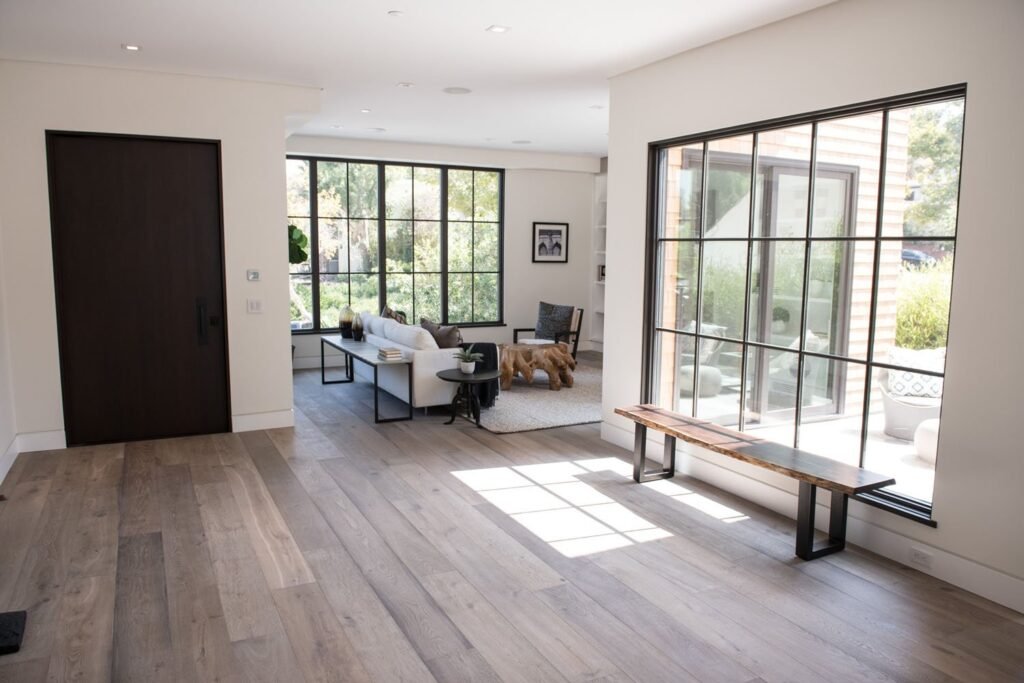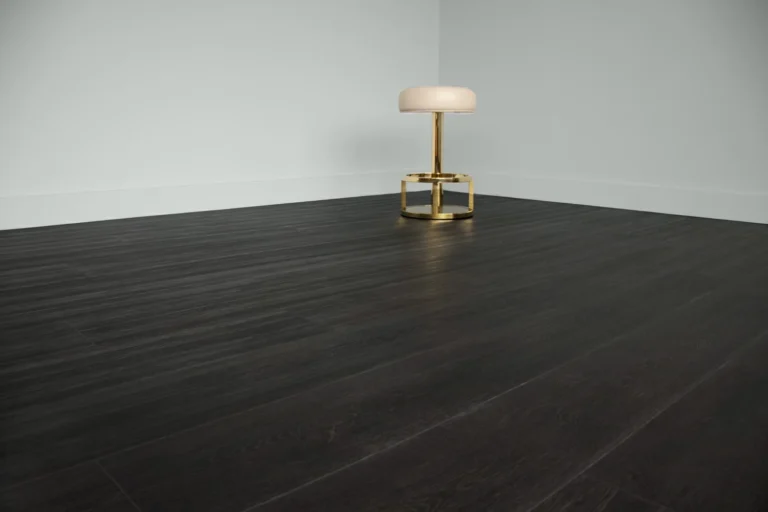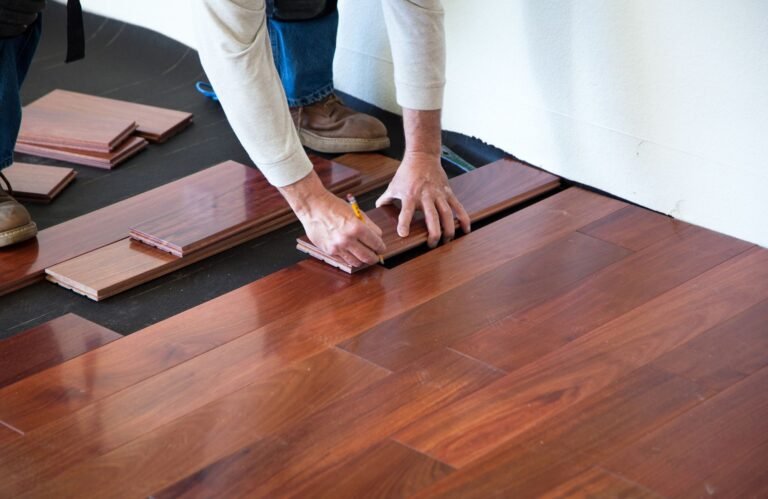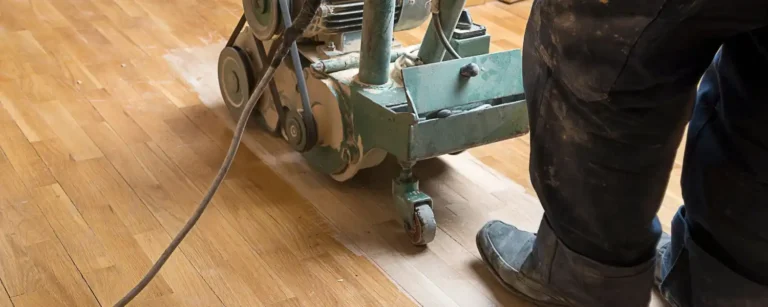Decoding Costs: How much does engineered hardwood flooring cost?
Add engineered hardwood flooring to improve your home’s beauty and worth. This type of flooring typically costs between $2,000 and $7,000, but the final price may vary based on various factors. This blog will analyze the costs associated with engineered hardwood flooring comprehensively.
Overview of Engineered Hardwood Flooring

Engineered hardwood flooring is a combined material that provides durability, stability and aesthetic appeal. It comprises multiple layers, including a top layer of real hardwood veneer that gives it an authentic appearance. The core layers are composed of plywood or high-density fiberboard arranged in a cross-grain configuration. This unique structure minimizes the effects of temperature and humidity changes, making engineered hardwood more stable than solid hardwood.
With a diverse range of styles, colors and wood species available, engineered hardwood caters to various design preferences. Its top layer of real wood maintains the warmth and beauty associated with traditional hardwood floors.
Learn in detail about engineered hardwood on our other blog, “What is engineered hardwood flooring“
Breaking Down the Basics: Factors Influencing Costs
Understanding the factors that affect the price of engineered hardwood flooring is crucial for homeowners and designers. Let’s explore these factors in detail:
Brand and Manufacturer
The reputation and brand recognition of the manufacturer are significant factors in determining the price of engineered hardwood flooring. Established brands with a proven track record of producing high-quality products tend to have higher prices. Reliable manufacturers often invest in research and development(R&D) and quality control measures, ensuring a superior product that justifies the associated cost.
Installation Complexity
The complexity of the installation process influences the overall cost of engineered hardwood flooring. Factors such as subfloor condition, the need for moisture barriers and complicated installation patterns can increase labor time and material requirements. A clear understanding of the installation complexity helps accurately estimate the total project cost.
Room Size
The size of the room or area to be floored directly affects the overall cost. Larger spaces require more materials, making them more expensive to floor. Additionally, the complexity of the layout can also impact the installation cost. Therefore, the flooring cost can vary based on the square footage of the space and the complication of fitting the flooring within that space.
Tree Type
The choice of wood species used in constructing the engineered hardwood flooring influences its cost. Rare or exotic wood species often come with a higher price tag due to their limited availability and unique aesthetic features. On the other hand, common domestic wood species are generally more budget-friendly.
Labor
Labor cost is a major component of the overall expense for installing engineered hardwood flooring. Proper installation requires skilled labor and labor costs can vary regionally. The total labor expenses involve removing existing flooring, preparing the subfloor and handling installation difficulties.
Types of Engineered Hardwood Flooring At Different Price Points
You can find various types of engineered flooring at different price points. The price is different because of the factors mentioned above. Now, let’s explore different types of engineered flooring at various price points.
Budget-Friendly Options
The cheapest engineered wood flooring, priced at $3 to $9 per square foot, typically consists of three core layers topped by a veneer measuring 1/16 to 1/12 inches thick. This flooring is easy to install for homeowners and offers advantages such as increased stability, resistance to humidity and more.
Mid-Range Selections
Mid-grade flooring costs range from $6 to $12 per square foot. Manufacturers produce this grade of flooring with slightly higher-quality wood than basic engineered wood. It usually consists of five core layers topped by a 1/8 to 1/2-inch thick veneer. This type of flooring is an excellent choice for pet owners because it is more scratch-resistant than its lower counterparts.
Luxury Investments
Luxury engineered wood is the most expensive type of flooring available. It can cost between $9 and $16 per square foot, but some options can go over $25 per square foot. This type of flooring generally consists of seven core layers and at least 1/6 inch vaneer. It is a great option for places with heavy foot traffic.
Installation Costs
Installation costs for engineered wood flooring may vary depending on several factors, including the area’s size, installation complexity and the labor rates in your locality. Typically, these costs are calculated per square foot and may include expenses such as labor charges, subfloor preparation and any necessary finishing touches.
DIY vs. Professional Installation
Suppose you’re considering installing engineered wood flooring in your home. In that case, it’s important to note even though DIY installation may seem like a good way to save money, we recommend hiring a professional for the best results. Installing the flooring without professional help requires careful preparation, specialized tools and a certain skill level to ensure correct installation. On the other hand, professional installers have the expertise and experience to handle all aspects of the installation process efficiently and effectively. It can save you time and inconvenience in the long run.
Learn to install engineered hardwood floors in our other blog, “Engineered Hardwood Flooring Installation Made Easy”
Additional Expenses
When planning to install engineered wood flooring, it’s important to consider additional costs besides the price of the flooring and its installation. These costs may include underlayment, adhesive, fasteners, transition strips and necessary tools or equipment. Analyzing and incorporating these additional costs into your project budget is essential to avoid any unexpected costs.
Underlayment Costs
Underlayment is placed underneath engineered wood flooring to provide cushioning, moisture protection and sound insulation. The underlayment cost can vary depending on the material type and product quality. Foam, rubber, cork and felt are some of the most common types of underlayment. The cost calculation of underlayment is typically on a per-square-foot basis.
Adhesive and Fasteners
When laying down engineered wood flooring, you may need to use adhesive and fasteners depending on the installation method and your flooring. For glue-down installations, you will require adhesive. Likewise, you will require fasteners like nails or staples for nail-down or staple-down installations. The cost of adhesive and fasteners may vary depending on the brand, type and quantity required for your project. It’s essential to seek advice from your installer or supplier to identify the right products for your specific installation method.
Factors to Consider Beyond the Price Tag
When considering engineered wood flooring, evaluating several factors beyond the initial price tag is important. Let’s learn about the factors to consider other than the price:
Return on Investment
Engineered wood flooring is a smart investment for homeowners, offering a great return on investment (ROI). Due to its durability and longevity, it can increase the value of your home and lead to a higher resale value. Many homebuyers consider engineered wood flooring a desirable feature that can make your property more appealing to potential buyers.
Warranty and Guarantees
Many engineered wood flooring manufacturers provide warranties and guarantees on their products, offering homeowners protection against defects or issues with the flooring. However, these warranties can vary in coverage and duration, so it’s essential to carefully read and understand the terms and conditions before purchasing. Look for warranties that cover structural integrity, finish wear and other potential issues to ensure you get the best protection for your investment in engineered wood flooring.
The Priceless Impact: Enhancing Your Space with Engineered Hardwood Flooring

Understanding the cost of engineered wood flooring involves considering factors like brand reputation, installation complexity, room size, wood species and labor costs. This knowledge helps homeowners, designers and builders choose flooring options that suit their needs and budgets.
As a wholesaler specializing in engineered wood flooring, Villagio Wood Floors is committed to supporting retailers in delivering top-quality products and services. Our extensive collection of high-quality options, expert guidance on installation methods and pricing considerations empower retailers to meet customer demands while confidently maximizing their profit. By teaming up with us, you can expand your product range and deliver unmatched value to your clients, guaranteeing success and satisfaction in every flooring project.
engineered hardwood flooring cost – FAQs
What is the average cost per square foot for mid-range engineered hardwood flooring options?
The average cost per square foot for mid-range engineered hardwood flooring options typically falls between $6 to $12.
Do different installation methods, such as floating or glue-down, impact the overall cost of engineered hardwood flooring?
Yes, different installation methods like floating or glue-down can impact the overall cost of engineered hardwood flooring. Each method has varying labor and material requirements, which can affect the total cost.
Do different installation methods, such as floating or glue-down, impact the overall cost of engineered hardwood flooring?
Generally, wider or longer engineered hardwood planks may come with a higher price tag than standard sizes due to the increased material costs and potential customization required. However, the pricing may vary depending on the manufacturer and other factors.
Can the thickness of the top layer of engineered hardwood affect its cost?
Yes, the thickness of the top layer of engineered hardwood can affect its cost. Engineered hardwood with a thicker top layer of real wood veneer typically tends to be more expensive than options with a thinner veneer. Thicker veneers offer greater durability and the potential for more refinishing, which can contribute to a higher price tag. In addition, thicker top layers can enhance the flooring’s visual appeal and authenticity, further impacting its cost.
















